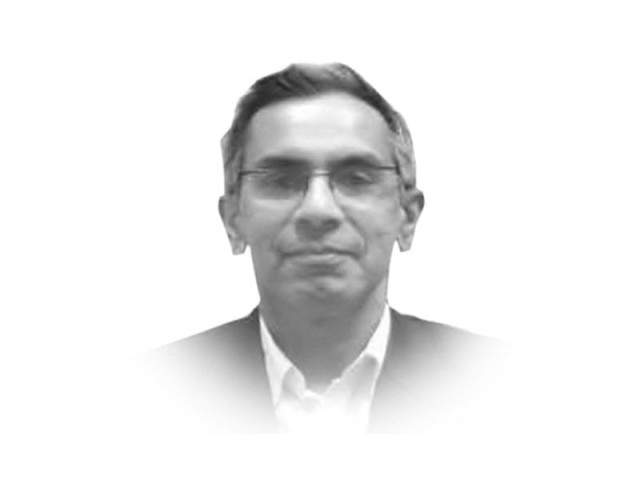Hafeez Shaikh is a poor choice
Many names going around are better suited than Shiekh who has had a role in creating many of Pakistan's economic woes.

The writer is a political economist
The media in Pakistan has become far more proactive and investigative over the last few years and continues to expose a number of aspects which undermine democracy. In recent articles by reliable and credible columnists and journalists, it has been argued that Dr Shaikh is “close to the military”, as well as to the US and the IMF, and in fact, there has been an assumption for some time, that Dr Shaikh is the “American’s man” in Pakistan. While we do not know to what extent these possibilities are true, if they are, they certainly reveal the continued presence and power of anti-democratic forces over the political class in Pakistan. If the military and the Americans have to determine who Pakistan’s prime minister will be, caretaker or not, that is a sad commentary on all the democrats elected in 2008, and those who hope to be elected in 2013. If there is any truth in such assertions, the political class needs to oppose the possible nomination of Dr Shaikh.
In the age of transition towards further democratisation in Pakistan, Dr Shaikh is a poor choice — lest one forget, he is a Musharraf-era minister as well — but he is also a very poor choice on the basis of performance criterion. There is much agreement amongst economists, that his tenure as Pakistan’s finance minister, has been marked by poor performance whenever any policy was followed through, and that didn’t happen all that much. The economy has not performed well at all on his watch and numerous articles in the press have revealed the inefficiency of his ministry over the last two years. And if the IMF want him as well, as some journalists have argued, one wonders why this would be the case. The IMF programme which he was responsible for undertaking, failed miserably, precisely because Dr Shaikh was not able to take the political elected class along with him. The failure to implement the RGST is the high mark of his career as Pakistan’s finance minister. Why should Pakistan have to suffer a failed technocrat as prime minister?
There must be better names for a caretaker prime minister than Dr Shaikh’s. With Pakistan’s numerous unresolved issues and problems, many of the names doing the rounds are far better suited to Pakistan’s current predicament than someone who has had a supporting role to play in creating many of the economic problems which face Pakistan today. Besides, the political parties in power — which are most of the parties, either at the centre or in the provinces — ought to make political choices to ensure that the correct signals are given about intent and purpose and about deepening the process of democratisation in Pakistan. The political class needs to show their independence, both from the military and from America, and appoint someone who has a better record at managing a government. Someone who has failed in one ministry is not suited to lead an entire cabinet. Some weeks ago, members of the National Assembly’s Standing Committee on Finance, which included at least one prominent PPP member, demanded the resignation of the finance minister. They stated that he “had no time to listen to parliamentarians’ proposals to put the economy on right [sic] track”. They were clearly outraged enough, according to the news report, to “force” the chairman of the Standing Committee to write a letter to the prime minister asking for the minister’s removal, and demanded that he be replaced by an ‘elected member’. One hopes, that not just these members of the Committee, but many others as well, will voice their dissent again.
It is probable that the caretaker prime minister and his (or her) cabinet will play a pivotal role in managing the electoral transition in this stage of democratisation. Individuals with ample democratic credentials ought to be better suited for such positions, not those who serve military dictators and switch loyalties given half a chance.
Published in The Express Tribune, February 21st, 2013.



















COMMENTS
Comments are moderated and generally will be posted if they are on-topic and not abusive.
For more information, please see our Comments FAQ